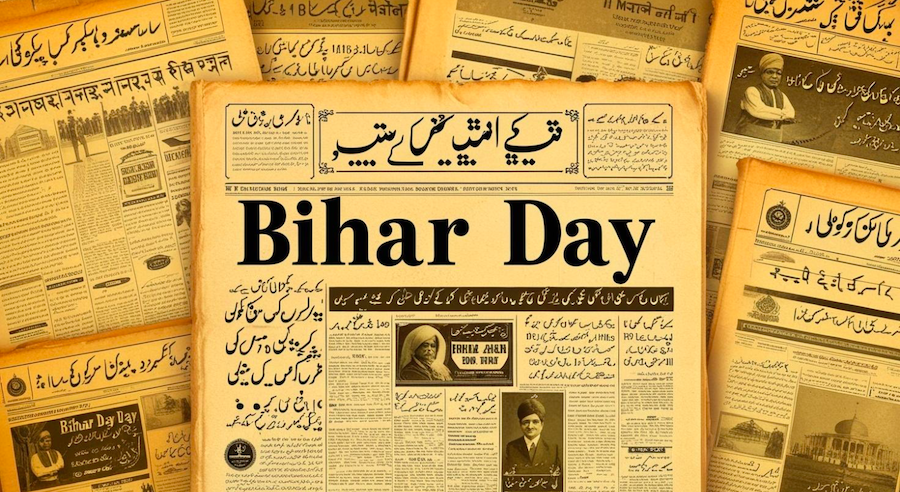Neyaz Farooquee
Fresh after the New York Police disclosure of eavesdropping on Bengali and Urdu speaking communities, the Bangalore police arrested terror suspects, who they claimed were in possession of “Urdu literature”. This, despite many previous instances of investigators mistaking texts for “Jihadi literature” – though later they were found to be innocuous.
In all this, what is most worrying is the dangerous potential these practices have for profiling on the basis of language and other factors that make India diverse, where Urdu is spoken by over 52 million and Bengali by 83 million people. Linguistic profiling is described as the auditory version of visual racial profiling, writes John Baugh, professor of education and linguistic, Stanford University. Baugh has documented this in action in the US, with landlords, on hearing “black-sounding accents” over the phone, refusing accommodation.
Asha Sarangi, associate professor, Centre for Political Studies, JNU, suggests that this trend if, unchallenged, can lead to “language genocide”. The Sate is treading on thin ice, says Navnita Chadha Behera, professor, Department of Political Science – Faculty of Social Sciences, Delhi University. “Today, it is language; tomorrow it could be religion, then one day it could be based on region.”
Discrimination may actually be wider. “Language-based discrimination… is not only huge but also complex and can best be seen in light of the multiple relationships between language and social discrimination,” says a 2007 study called Language-Based Discrimination: Blatant and Subtle Forms by Sik Hung Ng of City University of Hong Kong.
There is no doubt that inflammatory literature, which has the potential to influence impressionable youth, is doing the rounds. Such literature though is not limited to one language. Many a time, even mainstream literature can incite trouble, however unintentional. Take the example of a Naxalite who was apprehended in Andhra Pradesh. When asked how he had learnt to make bombs, he told surprised policemen that he had found the information in APJ Abul Kalam’s book Wings of Fire. The book also says “For more details, go to the author’s website”.
In many such instances, the police’s zeal to “crack” the case has taken a comical turn. In a well-publicised case of an alleged SIMI member’s arrest, the ‘Jihadi literature’ he was carrying turned out to be Mirza Ghalib’s couplet: “Mauje khoon ser se guzer hi kiyon na jay, aastane yaar se uth jaein kya!” A government affidavit says that this speaks of bloodshed and animosity. However, Urdu experts conclude that the couplet translates as: “Even if our heads are chopped off, whatever turn fate might take, we will not abandon the beloved’s place (which could mean country).”
Talking about discrimination on the basis on language, Salar Khan, a Delhi-based lawyer who has fought many terror-related cases, says, “It’s a recent phenomenon and it’s quite common.”
“They (investigators) are overdoing it,” says SR Darapuri, former IG-Police, Uttar Pradesh, which has the largest Urdu-speaking population in India. “They even conduct illegal call-tapping in complicity with service providers.”
Though experts refrain from terming such instances as cases of racial profiling, OP Sharma, former DGP, Punjab (during the days of insurgency), calls these “one-off cases”. Clarifying police actions, Arun Bhagat, former IB chief, says, “These are not racial. Our targets are individuals.” He adds that terrorism can’t be taken lightly.
Behera says it is “linguistic profiling to an extent”. The census does count people on the basis of language, clarifies Sarangi, but that is not to discriminate. “In the US,” she adds, “spying by the police is certainly linguistic profiling; but it could be racial, as well.”
Insidious intentions
“One thing it (such profiling) certainly does is to create fear and mistrust among different communities,” says Sarangi.
Language is a marker for identity, as can be seen in the ongoing upheaval in Assam, though it is not the primary reason. Further, as the violence spread to Mumbai, it worked to revive MNS’s demand for Hindi speakers to leave the city. Nilim Dutta executive director of Guwahati-based Strategic Research & Analysis Organisation explains how language has played a long-lasting role in the disturbance.
During the Partition, he says, many Bengali-speaking Muslims didn’t go over to East Pakistan (now Bangladesh) but adopted Assamese as their primary language. However, their accent identifies them as being different from the indigenous population. “Not profiling, but a deep-rooted prejudice exists,” says Dutta.
In a classic case of mistrust borne of language and appearance, a passenger at the IGI airport heard a bearded man talking about ‘missile’ with few other young bearded men. Alarmed, he informed police. As it turned out the man was a cleric and explaining in Urdu why he got delayed. “Bahut saare ‘masaael’ hain yahaan pe (there are many problems here).”
What is evident is that a terrorist can’t be identified on the basis of the language he/she speaks. A trained terrorist is more likely to disguise his identity through fluency in languages beyond his native one. Mohd Atta, for example, spoke fluent English though he was an Arab. So did David Headley, though he was of Pakistani origin. No surprise then that the New York police have not apprehended a single terrorist on the basis of linguistic profiling. The reason might lie in the city’s diversity – 77% of South Asians live in a household where at least two languages were spoken, a survey by New York City Commission on Human Rights reveals.
(This article was first published in Hindustan Times)









